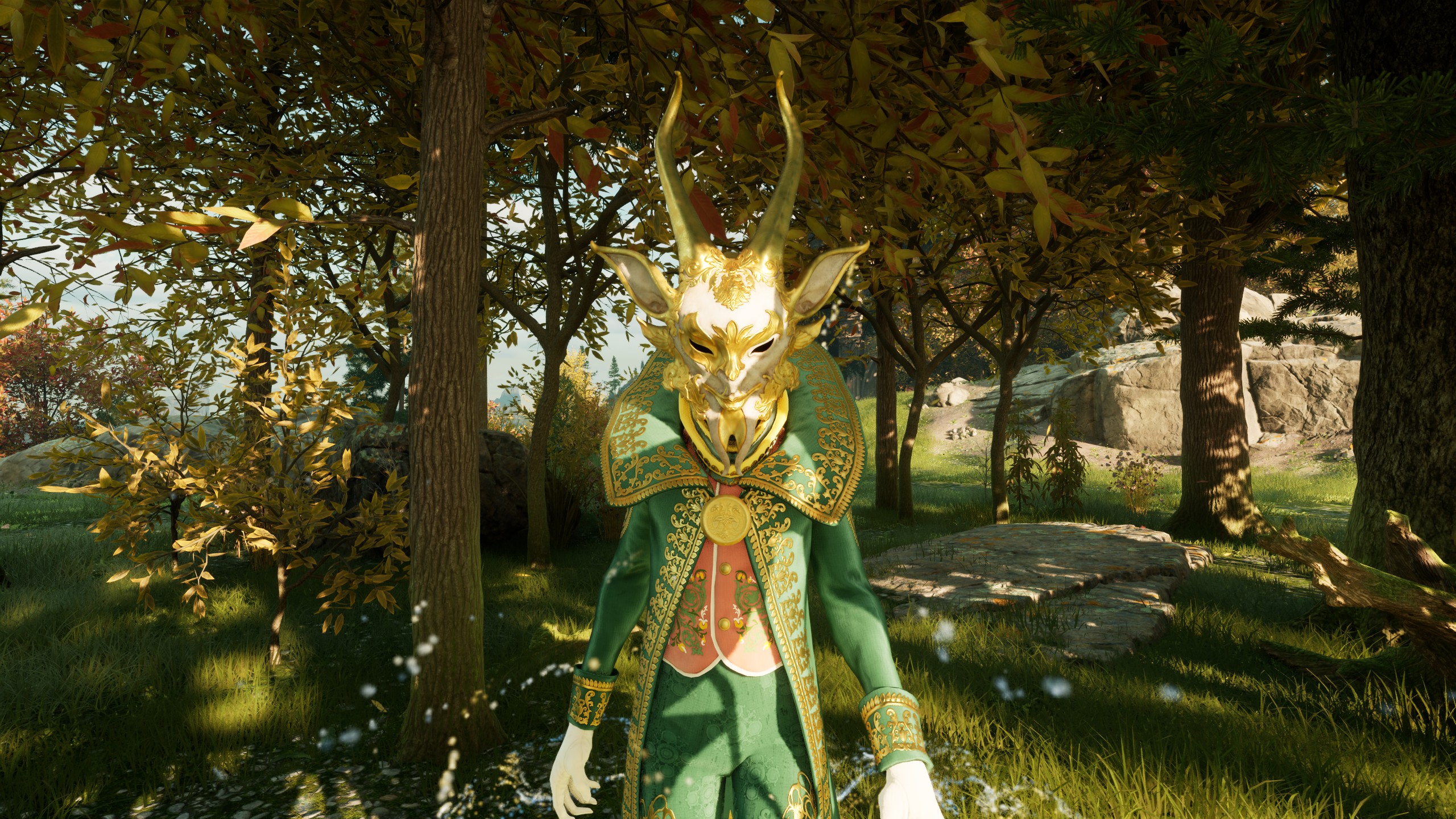
Nightingale's RPG credentials are apparent right away. Yes, this is absolutely a survival game full of crafting, building and managing annoying hunger, thirst and heat meters, but unsurprisingly his decades at BioWare have left a mark on Inflexion Games boss Aaryn Flynn.
I'm not talking about the crunchy numbers side of RPGs, but more the broad philosophy of story-driven games like Baldur's Gate and Mass Effect; games that favour world building, where the pace makes room for storytelling and in turn helps to gently create a tangible sense of place.
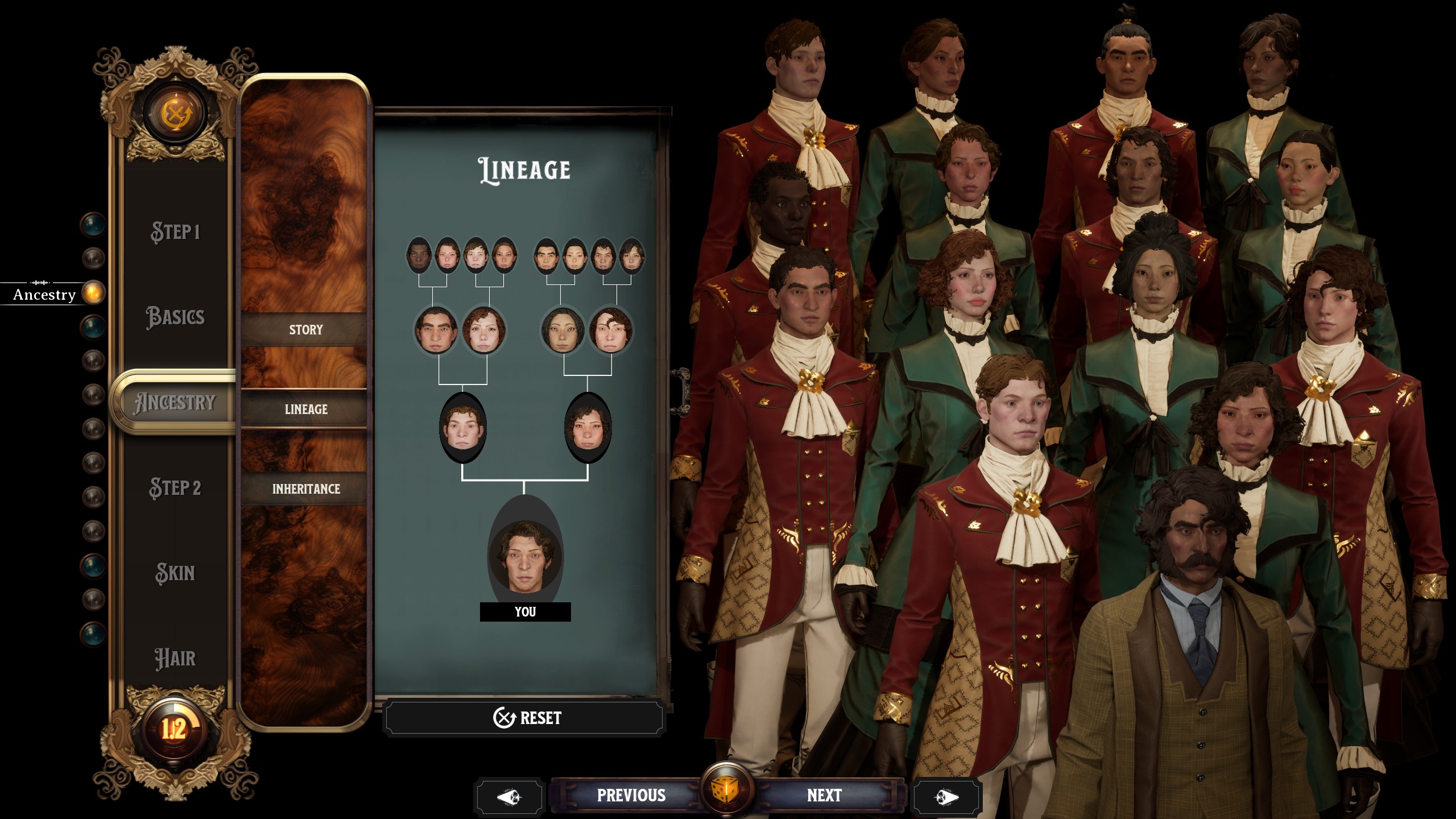
This is evident right at character creation, where instead of just rapidly designing a survivor, you select your career prior to the magical disaster that trapped you in these supernatural realms, and then select a bevy of ancestors whose faces you then use to inspire your own (unless you want to go down the fully customised route). You're subtly developing your legacy.
Of course, this being an early access affair means that there are missing elements, or things that don't quite make sense. For instance, while picking your parents makes sense because they inform how you look, you can also pick your grandparents and great-grandparents. It's a tad excessive, especially when, of the 14—yes, 14—characters you select in your lineage, only four of them have any impact on your appearance: your parents, and then one set of grandparents.
Further into character creation, meanwhile, options like scars and tattoos are listed, but currently can't be applied. Still, there's a great deal of flexibility here, letting you even determine how crooked your teeth are. Victorian orthodontists were awful.
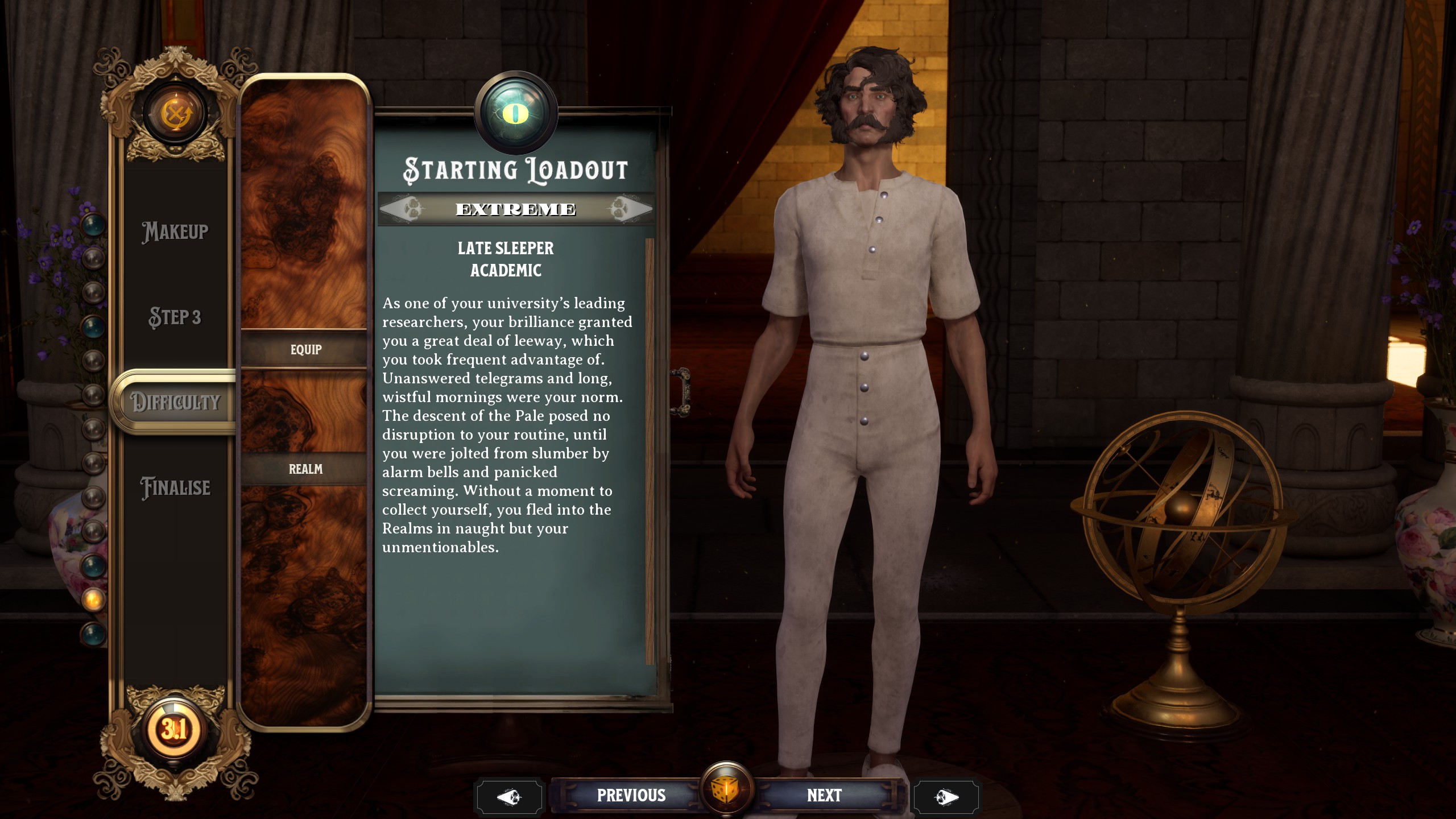
These early choices aren't pure backstory or aesthetic decisions, either. For instance, selecting the difficulty of your initial foray into these new worlds is done by picking how prepared you were for the aforementioned disaster. As an academic, for instance, you might have been incredibly cautious, warning your colleagues about the dangers of their experiments. They ignored you, but you prepared for the worst, and thus your loadout will make things easier for you once you start adventuring.
I'm a big fan of the setup for the extreme difficulty: everything went belly up when you were fast asleep, so you didn't even have time to get dressed before you escaped through a portal. Brilliant stuff.
With all this done, the misadventure can begin, and while a lot of early access survival games just kinda dump you in the world with some tutorial pop ups, Nightingale takes a more measured, RPG-like approach. A voice beckons you towards a portal, and after a light jog over to the other side you're introduced to Puck, a masked fae and your helpful guide, whose poetic turns of phrase call to mind the mischievous sprite of the same name from Shakespeare's A Midsummer Night's Dream.
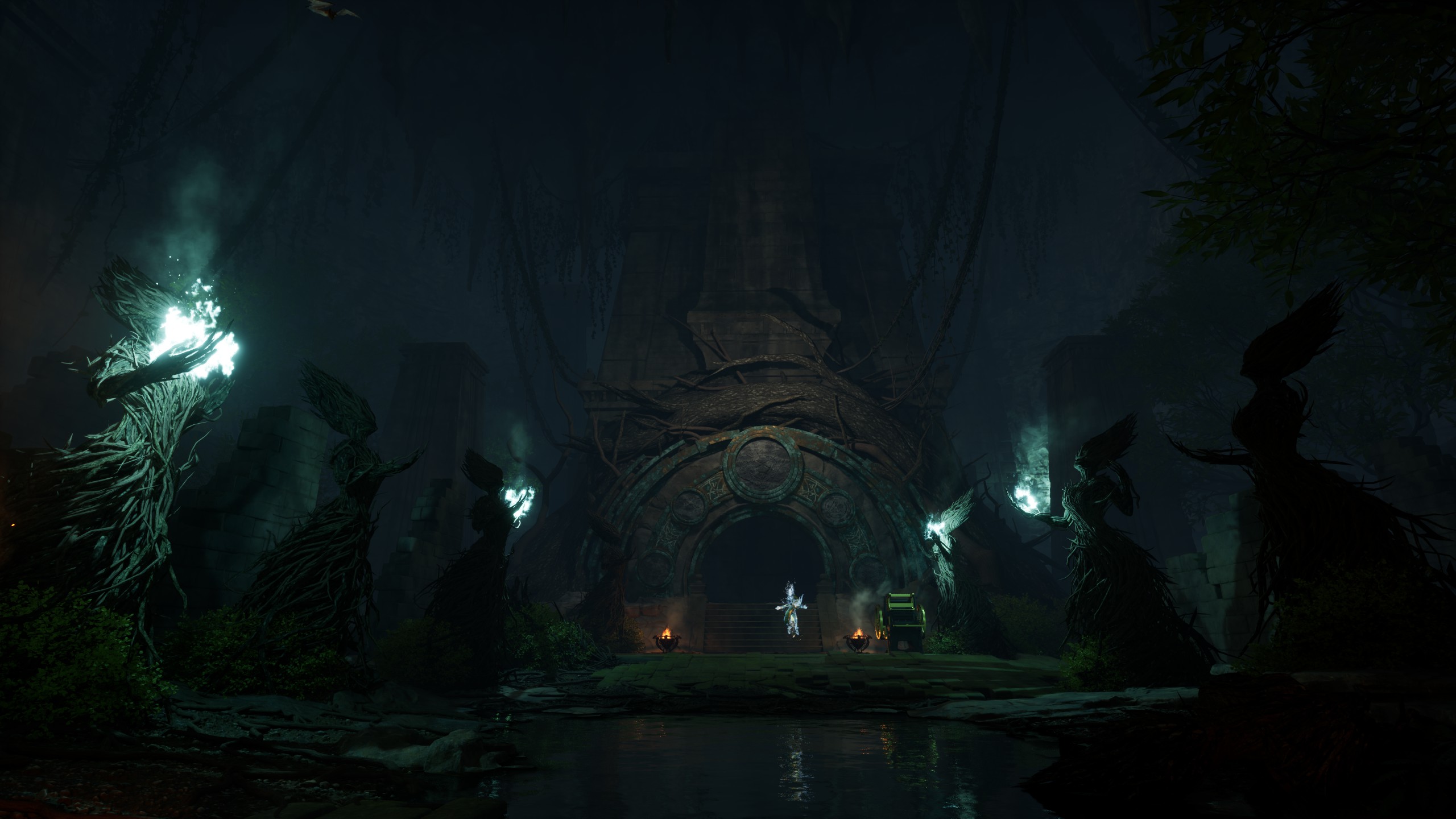
Puck serves a similar role to the raven in Valheim, but is chattier and more direct, serving as both a tutorial guide and quest giver. Across a trio of Byways (small worlds between worlds) that represent each of Nightingale's three current biomes, he prepares you for the challenges ahead, teaching you how to craft and survive, while also explaining how the card system that lets you tailor worlds to your specifications functions. It's an extremely effective tutorial, though its length and linearity might irritate survival veterans who are more used to leaping headfirst into sandboxes. There are quite a few hoops to jump through before you get to the game proper.
You can, however, sprint through the simple quests, but there are rewards for exploring the Byways that will put you in a much better position once you reach your new home, where you can start building your estate.
What I really appreciated about this tutorial section was Puck's little monologues, which go a long way to establishing this fantasy universe. The dialogue is full of world-building flavour as much as it's full of wisdom. And even once the basic tutorial ends, Puck continues to give you objectives, rewards and push you forward, while still giving you the space to explore and enjoy your own ambling adventures.
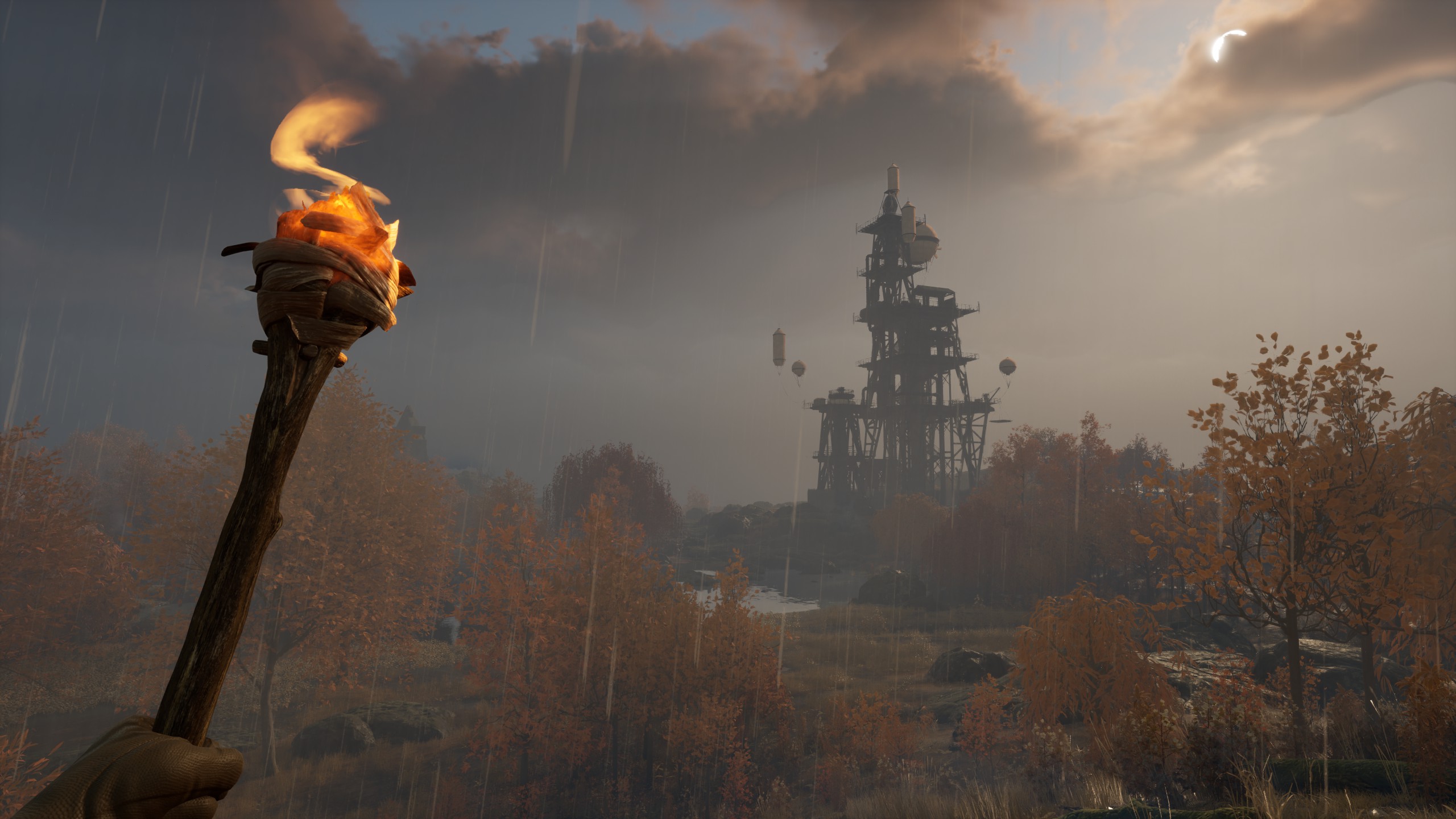
By the time I started putting down roots, I was already enchanted by Nightingale, and had a solid understanding of its systems—both novel and generic. I had a good grip on the universe, as well, making me instantly so much more attached to it than I was with Palworld or Enshrouded, which both felt considerably more perfunctory, particularly the former.
The storytelling does start to peter out eventually, as the focus becomes hopping between worlds and building huge compounds for you and your pals. But the novel gaslamp fantasy universe, with its clash of Victorian aesthetics and magical wildernesses, makes the environment itself a deft storyteller. It's also worth noting that more "story content" will be coming as the early access version develops, along with more biomes and the titular city of Nightingale itself.
Not since Obsidian's Grounded have I been so enthusiastic about the start of a survival game, and I guess that shouldn't be surprising, given that studio's narrative chops and RPG legacy. I can't wait to explore it more.







